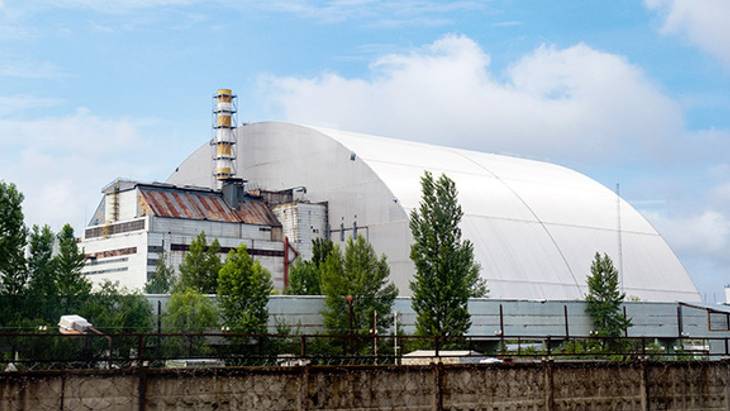Although Russian forces are in control of the site, Ukrainian staff have continued to manage day-to-day operations and had stayed at the site.
According to a report on the Chernobyl NPP Facebook account, 64 people were able to leave for the first time on Sunday - including 50 staff, 9 members of the National Guard (8 women and one cancer patient) and a service woman from the National Emergency Service.
It is not yet known if and when the rest of the original shift will be rotated.
Those leaving have been replaced by 46 staff who volunteered to enable the rotation of staff and "ensure the enterprise’s functionality". The existing shift, the plant's Facebook post noted, had been "at their workplaces for about 600 hours, having heroically performed their professional duties and maintained the appropriate level of safety".
Director General of the IAEA, Rafael Mariano Grossi, said: "It is a positive - albeit long overdue - development that some staff at the Chernobyl NPP have now rotated and returned to their families. They deserve our full respect and admiration for having worked in these extremely difficult circumstances. They were there for far too long. I sincerely hope that remaining staff from this shift can also rotate soon."
The IAEA chief, and the State Nuclear Regulatory Inspectorate of Ukraine (SNRIU), have warned over recent weeks about the safety risks of staff in the country working under pressure and not getting the rest they need to perform their jobs at their best.
Grossi said the situation at Chernobyl had breached one of the seven "indispensable nuclear safety pillars" the IAEA has set out for Ukraine's nuclear facilities - the one which states that "operating staff must be able to fulfil their safety and security duties and have the capacity to make decisions free of undue pressure".
The IAEA is continuing its efforts at agreeing measures with both sides to ensure the safety and security of the nuclear facilities. "With this framework in place, the agency would be able to provide effective technical assistance for the safe and secure operation of these facilities," he said.
Grossi held meetings earlier this month in Turkey with the foreign ministers of Russia and Ukraine, which he described as "constructive". A range of possible measures is being discussed, including IAEA staff travelling to the nuclear facilities.
The country's four nuclear power plants were all operating safely and with radiation within their normal levels, according to an update on 21 March by operator Energoatom.
The largest of the nuclear plants, Zaporozhe, has been controlled by Russian forces for more than two weeks, although operated by its Ukrainian staff. One of its external power lines was repaired last week, so it currently has three high voltage - 750 kV - off-site power lines available, including the standby one.
The IAEA said that the repair of the external line to Zaporozhe had allowed the two operating units at the site to increase their power output to two-thirds of their maximum capacity of about 1000 MWe each. In total eight of the 15 reactors in the country are currently operating.





_23009.jpg)
_33392.jpg)
_53504.jpg)







